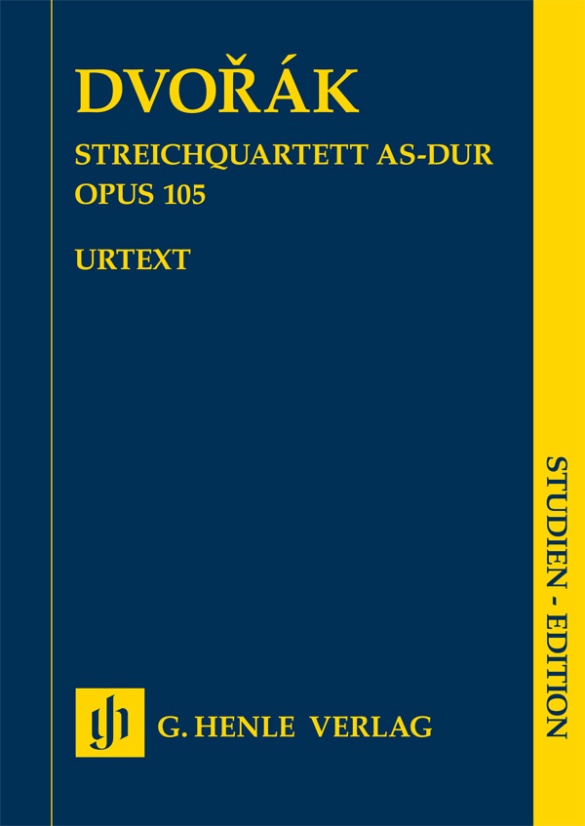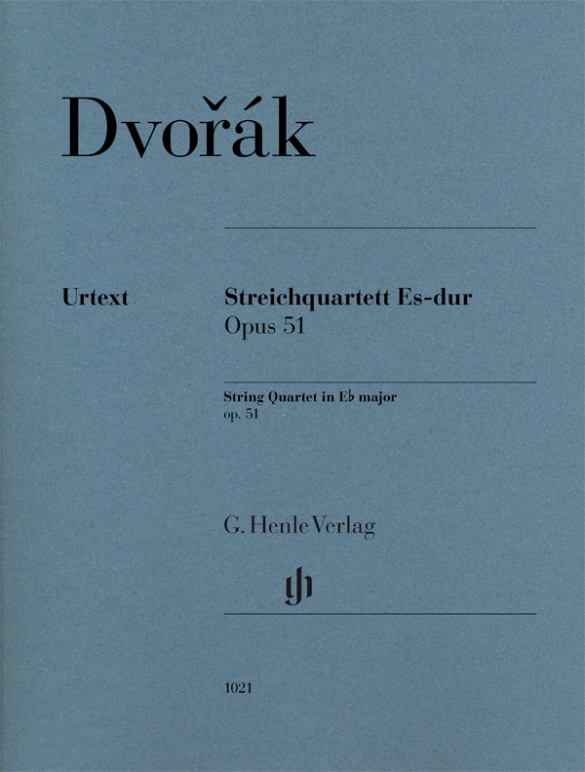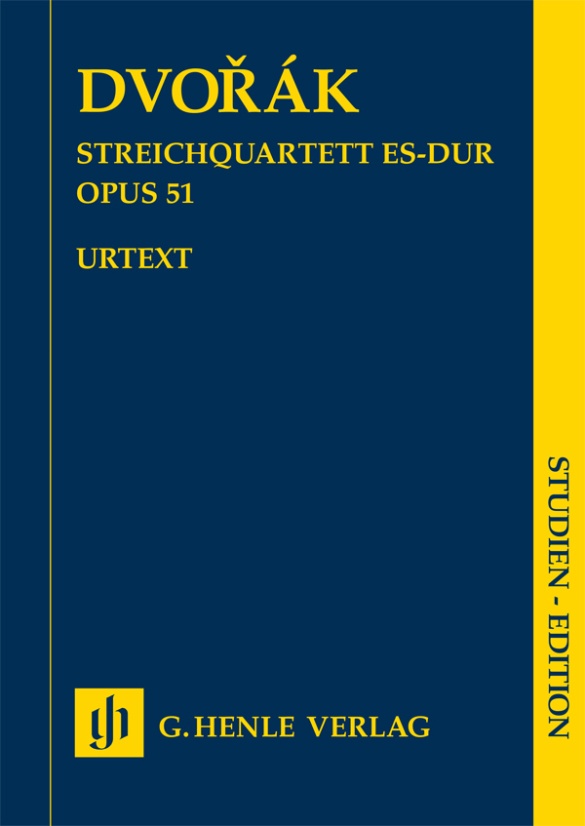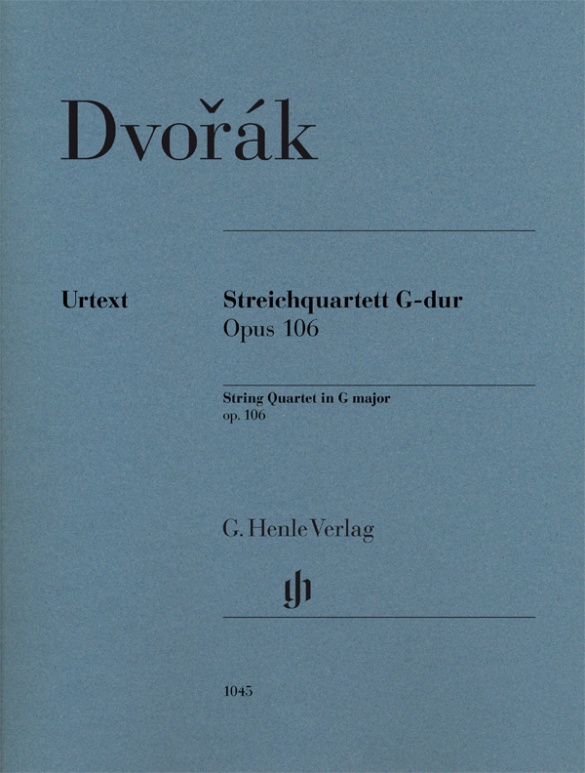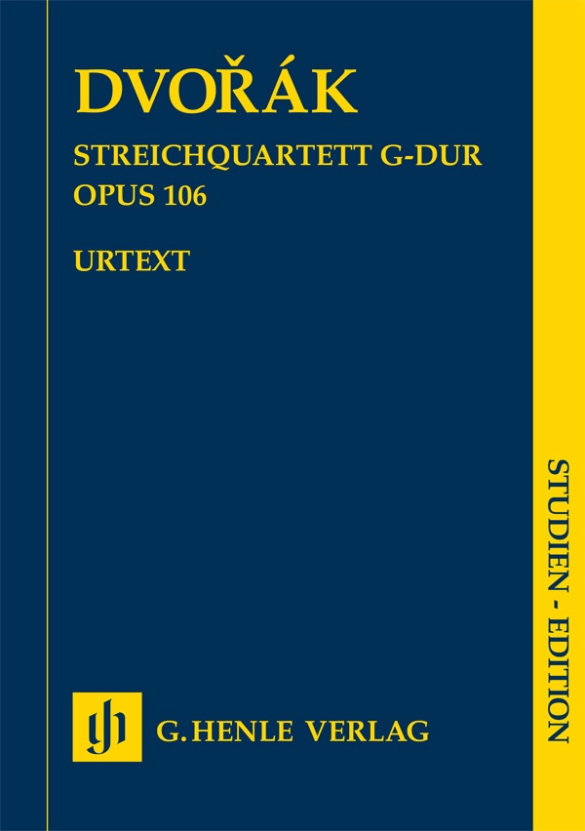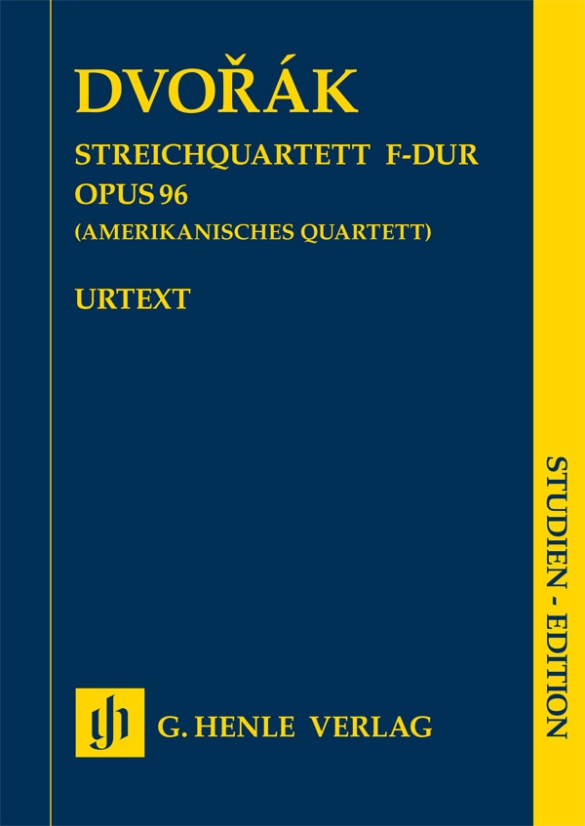Antonín Dvorák
String Quartet A flat major op. 105
Although Dvorák’s stay in America (1892–95) was very successful, the composer suffered a good deal from homesickness. He had begun the string quartet in A flat major in New York, but continued with it only after his return to Bohemia in December 1895. There is no trace of the influence of Indian or African-American music in this, his final chamber work; rather, the piece is striking for the amount of cantabile themes and motives, and their contrasting and artistic treatment. It seems that his relief at seeing his children and family again directly influenced the work. Dvorák himself wrote in a letter during its composition that “Almighty God has granted us this cheerful moment, and thus we all feel unutterably happy”. This Henle publication is the first Urtext edition of the quartet since 1955.
内容/詳細
作曲家について
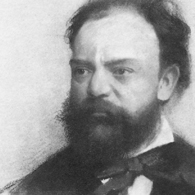
Antonín Dvorák
With Smetana he is the most famous Czech composer of the nineteenth century, contributing to the dissemination and appreciation of Czech music throughout the world. Among his around 200 works, encompassing all standard genres, are nine symphonies, fourteen string quartets, and twelve operas.
| 1841 | Born in Nelahozeves (Mühlhausen) on the Vltava River on September 8, the son of a butcher and innkeeper. |
| 1853 | Attends the training school in Zlonice; there he receives a comprehensive musical education from Josef Toman and the cantor Antonín Liehmann; subsequent education in Česká Kamenice (1856–57). |
| 1857–59 | Studies at the organ school in Prague. Until 1871 he will earn his living as a music teacher, organist, and violist. |
| 1861 | String Quintet No. 1 in A minor, considered his first work. |
| 1862 | Position as solo violist in the orchestra of the Bohemian Provisional Theater (conducted by Smetana, among others) |
| 1873 | Breakthrough with the premiere in Prague of his patriotic hymn “The Heirs of the White Mountain,” Op. 30. Employment at the private Prague School of Music. Several state scholarships. |
| 1874–77 | Organist at St. Adalbert church. |
| from 1876 | “Moravian Duets,” Opp. 20, 29, 32, and 38 (1876–77), “Slavonic Rhapsodies,” Op. 45 and the first series of “Slavonic Dances,” Op. 46 (both from 1878) enjoy great success. His fame abroad grows. |
| 1882 | Premiere of the opera “Dimitrij”, in the tradition of grand opera. |
| 1884 | First invitation to England, after which eight more will follow. |
| 1886 | Premiere of his oratorio “Saint Ludmila,” Op. 71. |
| 1891 | Professor of composition at the Prague Conservatory. |
| 1891–95 | Director of the National Conservatory of Music in New York. |
| 1893 | Premiere in New York of Symphony No. 9, “From the New World,” Op. 95 (American folkloric elements, cyclic techniques). |
| 1901 | Premiere in Prague of his most famous opera, “Rusalka.” |
| 1904 | Premiere in Prague of his last opera, “Armida.” Death in Prague on May 1. |
校訂者や運指担当者について

Peter Jost (校訂)
Dr. Peter Jost, born in 1960 in Diefflen/Saar, read musicology, German and comparative studies at Saarland University in Saarbrücken. He did his PhD in 1988 with a thesis on Robert Schumann’s Waldszenen.
From November 1991 to April 2009 he was a research associate at the Richard Wagner Complete Edition in Munich, and since May 2009 has been an editor at G. Henle Publishers. His Urtext editions comprise predominantly French music of the 19th and 20th centuries, including works by Lalo, Saint-Saëns and Ravel.
製品安全に関する情報

G. Henle Verlag
製品の製造元に関する情報はこちらでご覧いただけます。G. Henle Verlag
Forstenrieder Allee 122
81476 München
info@henle.de
www.henle.com
Wie von Henle-Ausgaben bekannt erfreut auch diese Ausgabe durch das vorausschauende Druckbild der Seiten in puncto gefahrenfreies Blättern (ausklappbare Seiten) sowie angenehme Lesbarkeit (nicht zu dichter Satz) mit einem hohen Spielkomfort. (...) Eine interpretenorientierte Ausgabe, mit der sowohl gut geprobt als auch gut konzentriert werden kann.
ESTA-Nachrichten, 2017おすすめ
autogenerated_cross_selling
このタイトルを含む他の版
このタイトルを含む他の版


